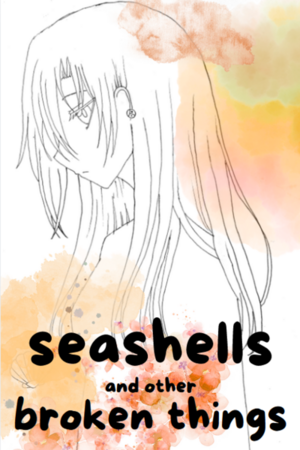Chapter 1:
The Protagonist Is Stuck Here. Forever.
Blue Monday
This is a story about writing. It’s not about how to write, but about the feelings involved in writing itself. It stars an unnamed protagonist, because his name, appearance, and ethnicity matter very little to the story.
Perhaps it would make sense to start the story with the moment he decides to become a writer, but I find it more appropriate to start with explaining the fact that our protagonist often wants to quit writing.
You see, he was never meant to be a writer. He always wanted to write, but the direction of his life has always pointed elsewhere. And because he is terrible at managing his time, he often tries to quit writing because it requires too much motivation that he could have devoted elsewhere.
Yet each time he tries to quit, he always ends up coming back. I think it is pretty much impossible for him to quit writing. It becomes clear why when you see the environment he finds himself in.
Let’s move over to his room. His room is simple: there’s a desk, a bed, a window, a bookshelf, and a source of artificial light. How they are oriented and how they look doesn’t matter to our plot. What matters is the presence of the bookshelf.
Our protagonist’s bookshelf is filled with many things: figures, cards, trophies, photos, and of course, books. Non-fiction, fiction, comic books, classics, and even notebooks filled with math or biology or whatever other subject he once studied at school.
In this particular scene, our protagonist is sitting at his desk and looking over what he has written so far on his favorite writing platform. He does not look happy.
You see, our protagonist has realized that he has lost the will to write. He knows he can write more, but believes that there is no point left. He knows he can’t change the world entire; he knows that he probably will have a better life if he simply devotes all of his focus into something else; he knows that he might be able to make a more direct impact on the world by landing himself a good job.
With these thoughts in mind, our protagonist closes his laptop and stands up from his desk, perhaps after writing a quick and premature ending for his current story, then walks out of the room. He is free at last. The door opens and closes. His writing journey supposedly ends.
The scene doesn’t change with him out of the room, so we fast forward about an hour until the protagonist re-enters the room.
Once the door reopens, the protagonist sits back down on his chair, opens up his laptop, then begins typing furiously onto a document like he just came back after a drink of coffee. But I assure you that he’s not under the influence of coffee or another kind of stimulus. The protagonist has simply regained his will to write. It’s quite concerning: this could be a sign of addiction.
While our protagonist furiously writes the next chapter of his novel, let’s zoom back to the bookshelf. The bookshelf is an unignorable bastion of creativity, a harsh reminder that other creatives have successfully shared their thoughts with the world while he has not; a reminder that the strangers’ fictional creations have become a part of his life, while his own unique ideas remain obscure even to his loved ones. It only takes a short glimpse at the bookshelf for the struggling writer to stop and think about a wonderful future where his own stories have been mass produced and have become common topics in day-to-day conversation.
But the bookshelf is only one example. Everywhere the protagonist goes, there is always a kind of fictional construct that successfully makes its way into his reality. For example, when the protagonist walks by a bus stop near his house, he often sees a poster of an upcoming movie. A few weeks later, it is then replaced with another upcoming movie.
Or for another example, when he is out shopping at a convenience store looking for toothpaste, he often ends up staring at a box of toothpaste made to attract kids with a drawing of a superhero or a princess. I mean, think about it: the influence of fiction on reality is so strong that they end up in strange places like cereal boxes or a box of vitamin gummies, when they clearly are not related in any way. The protagonist stares not because he is childish, but because he realizes how incredibly successful these pieces of fiction are compared to his own.
It’s unsurprising, then, how easily the protagonist finds himself back in writing. These reminders of “what could be” stay with the protagonist forever. They never go away. They only build and build until the protagonist finally acts on his desire to have his voice heard.
Returning our attention to our protagonist, who has been hard at work while we momentarily turned away his attention from him, we can see that he is currently wearing headphones. To really make my point across, I will tell you that he is listening to the soundtrack of a movie.
This was what had brought him back. He had left his room, listening to music and trying to do literally anything else, then found himself listening to the familiar soundtrack; this eventually caused him to remember how he felt while watching the movie. No, he couldn’t just watch the movie again–it was his own unique experiences that intertwined with the moviegoing experience that made him want to express his feelings in his own unique way. And as he grew unable to contain his yearning to express himself, he eventually walked back into his room and began writing again.
Each time, the protagonist's reasoning for quitting writing is slightly different, but the end result is always the same: he returns and writes. He can never get enough of it. There is always something left to be written, no matter how much he believes he has finished pouring out his heart onto paper.
The protagonist is unable to quit writing. This is neither tragic nor admirable.




Please sign in to leave a comment.